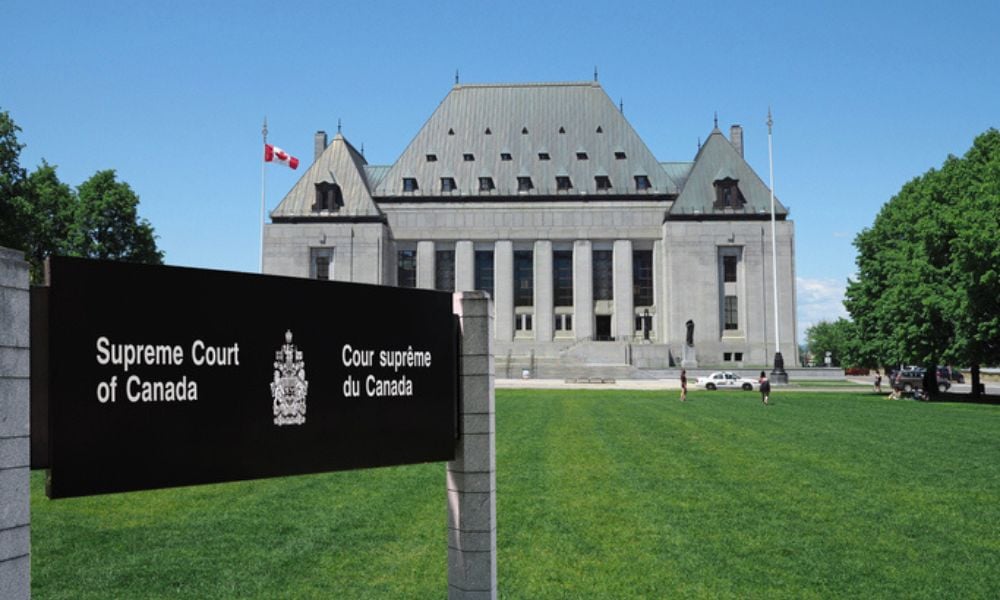
Federal Court tackles proposed class action, labour case, immigration matter this week

Canada’s highest court recently dealt with appeals in three sexual assault cases involving issues of alleged misapprehensions of evidence, credibility conclusions based on allegedly unfounded generalizations, and the defence of honest but mistaken belief in communicated consent.
Last Thursday, the Supreme Court reserved judgment in His Majesty the King v. Christopher James Kruk, 40095. The complainant, who was intoxicated, passed out or fell asleep in the respondent’s bedroom. She allegedly woke up to find him inserting his penis into her vagina. The trial judge convicted him though he denied having sex with her.
The B.C. Court of Appeal allowed the respondent’s appeal, set aside the conviction, and ordered a new trial. At the Supreme Court of Canada, the issues were whether the appellate court wrongly decided that the trial judge relied on speculative reasoning to accept the complainant’s evidence and whether the respondent’s argument about alleged misapprehensions of evidence had merit.
Also on Thursday, the Supreme Court reserved judgment in His Majesty the King v. Edwin Tsang, 40447. After drinking and dancing, the respondent and the complainant got into the respondent’s car to drive toward the complainant’s home. They went to the back seat to engage in initial consensual foreplay. Sexual assault allegedly followed. The trial judge convicted the respondent of this offence.
The B.C. Court of Appeal allowed the respondent’s appeal, set aside the conviction, and ordered a new trial upon finding that the trial judge based her credibility conclusions on unfounded generalizations.
Before the Supreme Court of Canada, the issues were whether the appellate court failed to apply a deferential standard of review, failed to functionally and contextually review the trial judge’s reasons, and improperly reweighed the evidence.
Last Friday, the Supreme Court dismissed the appeal in Jason Donald Hay v. His Majesty the King, 40316. Here, the appellant conceded that the complainant did not consent to anal intercourse but argued that he had an honest but mistaken belief in her communicated consent.
The trial judge admitted evidence of a previous sexual encounter and acquitted the appellant of sexual assault under s. 271 of the Criminal Code, 1985. She found not enough proof of the necessary mens rea and found an air of reality to the defence of honest but mistaken belief in communicated consent.
The Alberta Court of Appeal unanimously allowed the appeal, quashed the acquittal, and convicted the appellant of sexual assault. The trial judge erred by admitting evidence of previous sexual conduct and by finding an air of reality to the defence of honest but mistaken belief in communicated consent, the appellate court said.
At the Supreme Court, the issues were whether the appellate court wrongly conflated the actus reus (consent) with the mens rea (belief in communicated consent, whether mistaken or otherwise) and wrongly reversed the criminal standard of proof by placing the burden on the appellant to prove his innocence.
On Tuesday, the court heard Reginald Percival et al v. His Majesty the King, T-1417-18, which was a proposed class action about the Boarding Home Program for Indian Students, which aimed to promote Canada’s policy of culturally assimilating Indigenous persons into mainstream Canadian society.
The program separated Indigenous children and adolescents from their families and communities by large geographical distances and led to devastating intergenerational effects on Indigenous families and communities, the plaintiffs said in their notice of application.
The proposed class members allegedly experienced a loss of their Indigenous culture, language, and identity; suffered extreme sexual, physical, and psychological abuse; and lost the opportunity to exercise their Aboriginal and treaty rights.
On Tuesday, the court heard Christopher Priest v. The Professional Institute of the Public Service of Canada, T-239-23. Here, a judicial review application claimed that the Federal Public Sector Labour Relations and Employment Board’s decision on whether a settlement agreement was valid, final, and binding was unreasonable.
The tribunal made its decision based on an erroneous factual finding and without considering the material before it, the applicant said. The tribunal provided no reasons to discuss an essential argument, the applicant added.
On Wednesday, the court heard The Minister of Citizenship and Immigration v. Khalil Mamut and Aminiguli Aizezi, T-806-23. The underlying case involved the respondent’s permanent residence application. A judicial review application asked the court to prohibit the citizenship and immigration minister from deciding whether the respondent was inadmissible.
The minister filed a motion to protect certain redacted information over which there was allegedly deliberative secrecy or another public interest privilege. The Federal Court dismissed the motion and ordered the minister to disclose the information. The minister then brought an application under s. 37 of the Canada Evidence Act, 1985 to prohibit disclosure of the information.